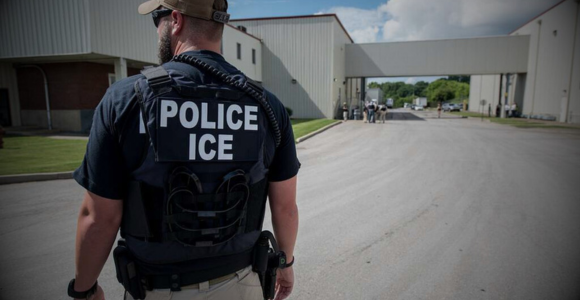
There is another layer to this story, as well. Both Mark and Luke make narrative connections to the original Exodus liberation folklore, too:
Mark appears to acknowledge the reality that “no one had the strength to subdue” the demon of Roman military occupation (5:4)—including the Jewish rebels. Yet he makes his revolutionary stance clear by symbolically reenacting the exodus story through a “herd” of pigs. With the divine command, the imperial forces are drowned in the sea. (Ched Myers, Binding the Strong Man: A Political Reading of Mark’s Story of Jesus, pp. 426-427)
Welcome Readers! Please subscribe to Social Jesus Here.
This is Part 3 of The Gerasenes and the Current Migrant Crisis
(Read this series from the beginning at Part 1 and Part 2.)
As I write this this week, I can’t help but see parallels between Rome stationing legions of soldiers throughout subjugated territories and the National Guard and the military in Los Angeles right now. The president of the United States this past weekend called for the arrest and imprisonment of a state governor. Every day, with the way the present administration is relating to our migrant population, instead of writing immigration laws to solve the present, broken system, they are sacrificing the U.S. constitution on the altar of authoritarianism and dictatorship. Migrants already faced a crisis here in the U.S. before this year. The actions being taken now only make matters multiple times worse.
The immigration crisis is a complex, multifaceted problem facing many countries around the world today. The crisis stems from several factors including political instability, economic hardship, violence, and climate change, which together compel millions of people to leave their home countries in search of something better. And who can blame them?
A major driver of this crisis is ongoing conflict in regions such as Central America. Many individuals and families flee from violence related to gangs, war, and political oppression, some of which has had either the support of the U.S. or was even created by the U.S. going back to the U.S.-Mexico War and farther.
In Central America, countries like Honduras, El Salvador, and Guatemala suffer from high rates of violent crime and corruption, pushing many to embark on dangerous journeys toward the United States or Mexico. Economic factors also play a part in compelling people to migrate in hopes of a better life.
And all of this doesn’t even take into account how climate change is increasingly contributing to displacement. Droughts, floods, and other natural disasters devastate communities, especially in vulnerable regions, destroying livelihoods and forcing people to move. This environmental migration often intersects with economic and political causes, complicating efforts even more.
As a “destination country,” the U.S. continues to grapple with an outdated, biased, and overwhelmed immigration system. We are failing to balance border security with adequate protection and support for migrants and refugees. Add to all of this the fear-mongering and misinformation used to manipulate voters in heated political debates that polarize the public and put calls for stronger immigration controls in opposition to appeals for compassion and comprehensive reform. Misinformation is at the heart of the two realities our citizens are living in. Some call for cruelty, others for compassion.
The present immigration crisis is driven by a complicated intersection of violence, poverty, and environmental factors, and we need cooperation, compassion, and long-term solutions for the root causes. Current policies are violating people’s human rights. Migration to the U.S. is not new, and our present response to migration is unsustainable and brutally cruel.
As followers of Jesus, whose teachings were shaped by the Hebrew prophets and the Torah, it would do us well to listen to those same sources and allow them to inform our stances today:
“Do not mistreat or oppress a foreigner, for you were foreigners in Egypt.” (Exodus 22:21)
Do not oppress a foreigner; you yourselves know how it feels to be foreigners, because you were foreigners in Egypt. (Exodus 23:9)
When a foreigner resides among you in your land, do not mistreat them. The foreigner residing among you must be treated as your native-born. Love them as yourself, for you were foreigners in Egypt. I am the LORD your God. (Leviticus 19:33, 34)
This is what the LORD says: Do what is just and right. Rescue from the hand of the oppressor the one who has been robbed. Do no wrong or violence to the foreigner, the fatherless or the widow, and do not shed innocent blood in this place. (Jeremiah 22:3)
The people of the land practice extortion and commit robbery; they oppress the poor and needy and mistreat the foreigner, denying them justice. (Ezekiel 22:29)
Today, our policies resemble more those ancient stories of how Sodom and Gomorrah treated strangers who sought hospitality or safety (today we would call it Asylum) within their borders, rather than the compassionate justice that calls us all.
Are you receiving all of RHM’s free resources each week?
Begin each day being inspired toward love, compassion, justice and action. Free.
Sign up at HERE.














